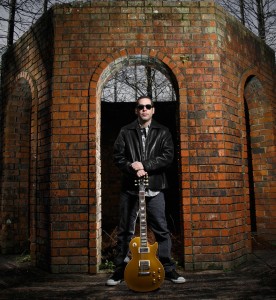 Big Dog is Castiglia’s newest release via Ruff Records. Recorded at Dockside Studios in Louisiana, Big Dog is raw and rocking, just like Castiglia himself. He says it’s the album that best represents who he is as a musician. All 11 tracks come from the heart, and it’s obvious that Castiglia and his team put a lot of love into this one. Read his interview with Elmore Magazine about his love for music, and recording the new album. Then, check out the stream of Big Dog below.
Big Dog is Castiglia’s newest release via Ruff Records. Recorded at Dockside Studios in Louisiana, Big Dog is raw and rocking, just like Castiglia himself. He says it’s the album that best represents who he is as a musician. All 11 tracks come from the heart, and it’s obvious that Castiglia and his team put a lot of love into this one. Read his interview with Elmore Magazine about his love for music, and recording the new album. Then, check out the stream of Big Dog below.
Elmore: Your tracks are guitar heavy, illustrating your love of the instrument. What drew you to learning guitar and do you remember the first moment you really felt that you mastered the instrument?
Albert Castiglia: My uncle played guitar when I was a kid. He played a lot of classic rock from the ’60s and ’70s. He got me into Led Zeppelin, Grand Funk, Santana, the Who, the Allman Brothers, the Beatles and the Stones. He got me into Bob Dylan as well. He used to have weekly jam sessions at my grandparents’ house. That started my interest in guitar. I was 12 years old.
I don’t feel that I’ve mastered the instrument. I think mastering the instrument is an ideal. I’m not sure mastery is totally attainable. There’s so much you can do with the instrument, so much to learn from. That’s what I love about guitar, the endless possibilities. I’m still learning things on it and it’s a wonderful thing. The feeling I get from learning something new on the guitar is as great as it gets. The more I learn, the better I become. However, I can remember the moment that I felt I was pretty good at it and could make a living from it. That was the day I was hired to play in Junior Wells’ band in 1997 and by then I had been playing in bars for 10 years. That was the first moment where my confidence level got a major boost.
E: Your tracks are clearly blues influenced. Do you remember what first drew you to the blues, and what artists have influenced your own music?
AC: When I was a kid in school, I didn’t really fit in anywhere. Typical disenfranchised childhood crap. I grew up in the ’80s when really substantive music was lacking. There wasn’t a lot of stuff that I felt I could relate to. There were exceptions, of course. I loved Springsteen’s stuff and I did like certain hard rock groups like Motorhead and AC/DC. I first discovered the blues through a live Eric Clapton album called Just One Night. He covered a lot of blues on that record, Junior Wells, Otis Rush, Bobby Bland, Big Maceo Merriweather. I was like “Hmm, this is interesting!” I then bought the John Mayall Beano album and discovered Freddy King from it. I’m like, “This is really cool stuff”. I buy B.B King’s ‘Best Of” album from the MCA years and I’m like, “OK, I’m becoming a fan of this thing they call the blues”. Then, I go to my local record store in Coral Gables, FL and picked up the Muddy Waters Hard Again cassette. That was it. That’s when I knew what I wanted to do with my life.
I wanted to be a blues man the second Muddy opened his mouth on the first track (“Mannish Boy”) with the “Oh Yeah!!!” a capella intro. My path was further cemented when the band came in and put down the freshest, most primitive, raw groove I’d ever heard in my life. It was a true revelation for me. Chicago blues was it for me and I wanted to be a Chicago blues man from that day on. It was around 1986 when that happened. The blues spoke to me. The message and themes were appealing to me. The me against the world attitude that it represented appealed to me. It’s the greatest form of American music we have. Without it, there’s no rock & roll and I adore rock & roll. All the artists mentioned were influences but there are so many others. Buddy Guy, Luther Allison, Johnny Winter. The list is very long.
E: You characterize your style as “raw” and “crude,” since you feel that you don’t have a “technical proficiency” that other players have. Did you want your albums to sound more unpolished? Do you think this gives your albums an element of authenticity? How do you think your style of playing guitar influences your lyrics or vice-versa?
AC: I have an edgy sound. I don’t know if unpolished is the sound I’m going for in the studio. I just like my albums to capture how I sound live. I think my last three records (Big Dog included) accomplished that. For the most part, I like my rhythm guitars to sound slightly over-driven and my lead playing is geared more towards feeling and emotion rather than technique. I fly by the seat of my pants and take chances with my playing. When you do that, you’re prone to making some mistakes every now and then. Sometimes the mistakes are pleasant and sometimes they aren’t. However, I enjoy and embrace the high risk, high reward philosophy of playing.
I probably should have worded the “technical proficiency” statement a little better but I will own it. I think I made that statement because there are so many great players out there with much more chops than I. I just make the most of what I have and I created something that’s my own. My music is authentic to me and to the people who come to my shows and support me. That’s what matters. I feel my lyrics influence my playing more than the other way around. When I write lyrics and I look them over, I pretty much have an idea of what direction the music’s going to go. For instance, I wrote, “Somehow” with Cyril Neville. Cyril is an awesome lyricist. He paints very vivid pictures with his words. When he sent me the lyrics, I knew right away how I was going to approach the song. The sensitivity of his message drew me to making the song a ballad. The lyrics are the painting and the music is the frame. In a musical sense, the frame is as important as the painting itself.
E: The heaviness of “Get Your Ass in the Van” makes it one of our favorite tracks on the album. Which would you say you enjoyed recording the most? Which do you get excited about playing live?
AC: For the first time in my career, I enjoyed recording every song on an album. Every song we laid down knocked me out. I’ve never felt that way about my albums in the past. There were always a few tracks on each of my past albums that I felt I could’ve done better. That’s not the case with Big Dog. It was all good. I definitely enjoy playing “Get Your Ass In The Van” live. “Drowning At The Bottom”, “What The Hell Was I Thinking” & “Let The Big Dog Eat” as well. I’m slowly working in the other tunes at my shows. By the time this album picks up steam, they’re all going to be on my set list.
E: You see Big Dog as being a “game changer.” What truly sets this album apart from the other five you have written?
AC: There are quite a few factors. The material is stronger. I like the songs that I wrote on my own a whole lot. The songs I co-wrote with my friends are really something. I love them. Mike Zito did a great job producing it and his band was the perfect, studio savvy combo for me. A Grammy award winning engineer in David Farrell didn’t hurt either. Dockside Studio in Maurice, LA was an amazing place to record. So full of mojo, you could cut it with a knife. Everything fell into place during that session and it comes through on the disc.


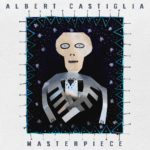
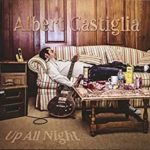
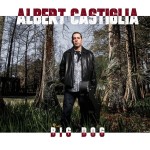
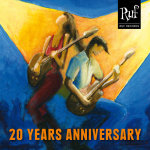

Be the first to comment!